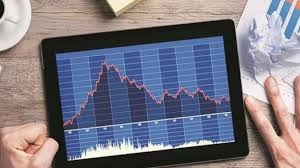The high-degree of digitisation of the Indian financial markets has made a demat account a mandatory requirement for trading in shares. Not only does a demat account a variety of benefits, converting physical shares to demat form has become hassle-free as well. Holding shares in electronic format not only ensures the safety of your investments but also makes tracking and trading simpler. If you are thinking about converting your physical shares to demat form, here’s a step-by-step guide for you. Remember, the first step in this process is to open a demat account. Bajaj Broking provides an efficient and user-friendly Demat account app that supports seamless conversion.
1. Open a Demat Account
To convert physical shares to electronic form, you’ll need a demat account. Now, there are plenty of demat account apps and sites in the market. You will need to do through research to carefully select a broker based on:
- Pricing and fees
- User interface and experience
- Security of your data and information
- Ease of transaction
- Speed and reliability
- Access to relevant news and knowledge
Consider Bajaj Broking that offers a free demat account, making it easy for you to start the process without heavy initial costs. Their app provides a smooth onboarding experience with minimal documentation requirements.
2. Fill Out the Dematerialization Request Form (DRF)
- Obtain the DRF: The Dematerialization Request Form (DRF) can be downloaded from your broker’s demat account app or website.
- Fill in Details: Enter essential details like your account number, ISIN (International Securities Identification Number) of each share, and the number of shares you wish to convert.
- Separate DRF for Each Company: If you’re dematerializing shares from multiple companies, you’ll need a separate DRF for each.
3. Submit the Physical Share Certificates and DRF
- Attach Physical Certificates: Attach your original share certificates along with the completed DRF form.
- Drop-Off Points: Many brokers offer drop-off locations for submission or you can mail them directly if you’re unable to visit. Some even offer the service of home-collection. Do note, this service may come with an additional fee.
- Verification Process: The broker verifies your DRF and certificates, ensuring that all submitted documents are in order.
- Sent to RTA: Once all is found to be in order, the broker sends your request and documents to the RTA (Registrar and Transfer Agent) to review and approve the request.
4. Track the Dematerialization Process
Some demat account apps may provide the option to track the progress of your dematerialization request in real time. Others may send regular notifications to keep you abreast of the stage your request is in. You can call the customer care team of your broker to get a status update.
Generally, the conversion process can take around 15-30 days, depending on the issuer company and its RTA.
5. Receive Shares in Your Demat Account
Once the process is completed, your shares are credited to your demat account. Having shares in demat form makes them accessible for online trading, transfer, and better portfolio management.
Key Benefits of Converting Physical Shares to Demat
- Enhanced Security: Electronic shares eliminate the risk of damage, loss, or theft associated with physical certificates.
- Convenience: Managing and trading shares is easier in digital form, with no paperwork required.
- Increased Liquidity: Electronic shares can be bought or sold quickly, improving portfolio flexibility.
Conclusion
Converting physical shares to demat is essential for today’s investors. With the right broker, the broker can be smooth and easy. Bajaj Broking’s streamlined free demat account app and efficient support make it easy to transition your physical holdings into a secure digital format. If you haven’t yet, consider opening a free demat account with Bajaj Broking and enjoy hassle-free investment management with top-tier customer support.





